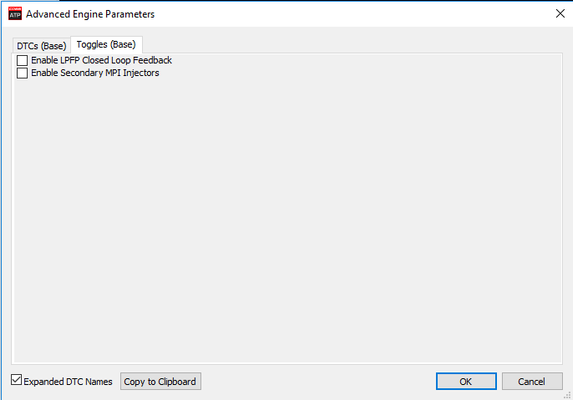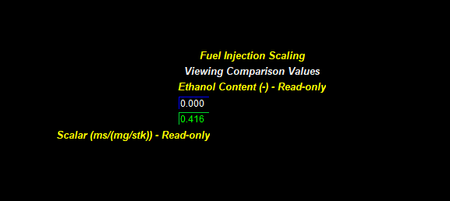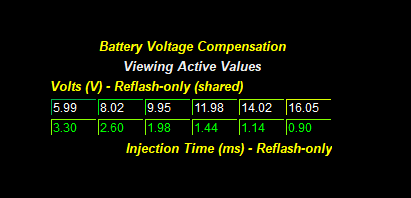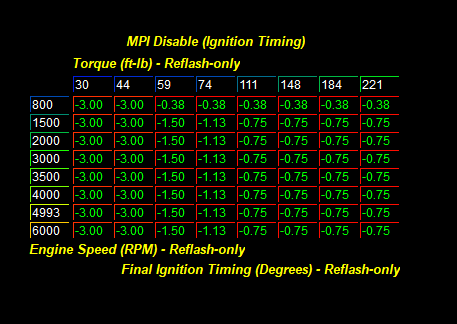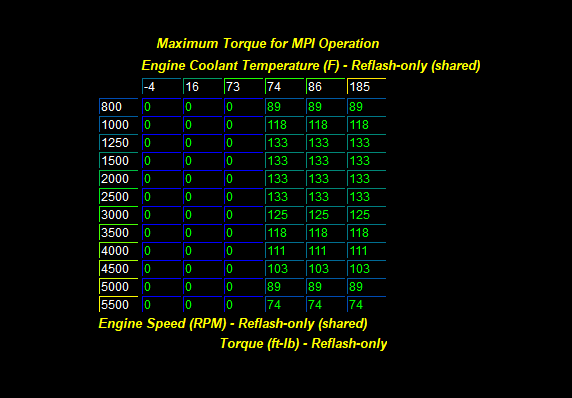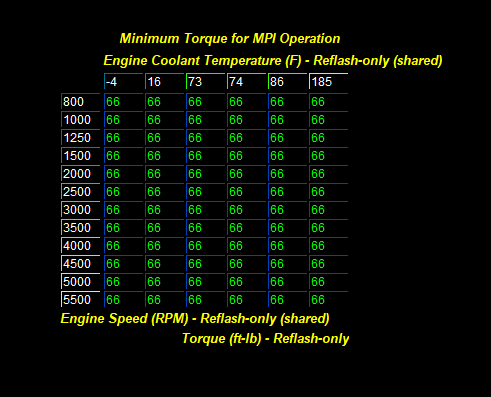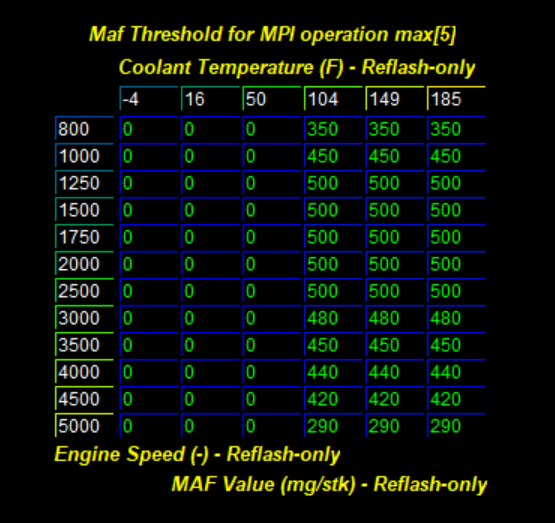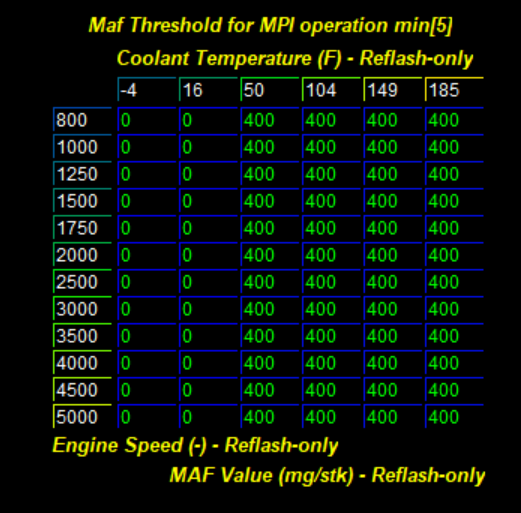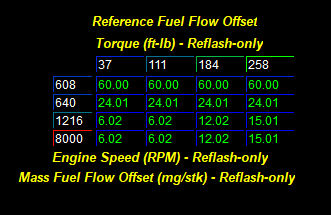COBB Volkswagen MK7 GTI and Golf R Secondary Fuel Injection (MPI)
Volkswagen GTI and Golf R Secondary Fuel Injection (MPI)
The factory ECU software is able to be reconfigured to allow simultaneous injection from HPDI and MPI system. This requires the installation of additional hardware for the USDM vehicles. This guide will walk you through the necessary steps to allow the software to control the additional injectors. This feature is only available on our COBB CCF rom. 2015-2019 USDM GTI and Golf R's all have the ability to upgrade to the USDM Volkswagen CCF Mk7 GTI / Audi A3 (CXCA 5G09C0BB01) or USDM Volkswagen CCF Mk7 GTI / Audi A3 (CXCA 5G0906259Q) or USDM Volkswagen CCF Mk7 Golf R / Audi S3 (CYFB 8V09C0BB01) or the USDM Volkswagen CCF Mk7 Golf R / Audi S3 (CYFB 8V0906259Q).
The stock roms for each car do not support this feature on the COBB platform.
For additional information check out our live webinar recorded august 2019
VW MPI Webinar 8/19
Applicable Model/Year:
The ability to use a secondary rail with Port Fuel injection is available in the following COBB Consolidated CCF Roms:
USDM Volkswagen CCF Mk7 GTI / Audi A3 (CXCA 5G09C0BB01)
USDM Volkswagen CCF Mk7 GTI / Audi A3 (CXCA 5G0906259Q)
USDM Volkswagen CCF Mk7 Golf R / Audi S3 (CYFB 8V09C0BB01)
USDM Volkswagen CCF Mk7 Golf R / Audi S3 (CYFB 8V0906259Q)
- The following roms can be flashed with the 5G09C0BB01 rom:
- 5G0906259A
- 5G0906259D
- 5G0906259L
- The following roms can be flashed with the 8V09C0BB01 rom:
- 8V0906259E
- 8V0906259H
- 8V0906259K
- 8V0906259P
How to activate the secondary fuel injectors:
In order to activate the ability to use the secondary fuel rail and injectors, select the 'Enable Secondary MPI Injectors' check box.
Optionally, you can 'Enable LPFP Closed Loop Feedback' as well. This allows closed loop control of the low pressure fuel system using tables discussed later.
Tables Requiring Setup:
At a minimum, to get up and running with a new MPI system, the following tables must be changed:
Current MPI Tables
- MPI Control Tables
- MPI Disable (Ignition Timing)
- Mass Fuel Flow Correction (Split Injection)
- Mass Fuel Flow Correction Factor (Split Injection)
- Mass Fuel Flow Split (HPDI/MPI)
- Mass Fuel Flow Split Maximum (HPDI/MPI)
- Maximum Torque for MPI Operation
- Minimum Torque for MPI Operation
- Reference Fuel Flow Monitoring HPDI
- Reference Fuel Flow Offset
- MPI Injection Conrrection
- Battery Voltage Compensation
- Fuel Injector Scaling
- Fuel Temperature Compensation
- Intake Manifold Temperature Compensation
- Minimum Injection Time
- Nonlinear Injection Correction
Related Monitors to MPI and LPFP control:
Cyl 4 Inj Time MPI Pulse - Injection Time at Cylinder 4 for Secondary Injector
Cyl 3 Inj Time MPI Pulse - Injection Time at Cylinder 3 for Secondary Injector
Cyl 2 Inj Time MPI Pulse - Injection Time at Cylinder 2 for Secondary Injector
Cyl 1 Inj Time MPI Pulse - Injection Time at Cylinder 1 for Secondary Injector
Fuel Injection System Split - Current Split between HPDI and MPI injection System
Mass Fuel Flow Set Point MPI - Mass Fuel Flow Sent to MPI injection system
Fuel Pressure Differential MPI - This is the differential fuel pressure at the tip of the injector. (Low pressure fuel system rail pressure - Manifold Pressure)
Mass Fuel Flow Reference Delta - Difference between the mapped reference mass fuel flow and fuel flow calculated from the level 2 monitoring system
LPFP Pressure Actual - Actual fuel pressure in low pressure rail
LPFP Pressure Delta - Difference in the actual pressure in the low pressure rail versus the set point
LPFP Pressure Set Point - Low pressure set point for rail pressure
LPFP Prop Feedback - Proportional feedback to LPFP controller. (Enable LPFP Closed Loop Feedback must be enabled for this to work)
LPFP Int Feedback - Integral feedback to LPFP controller. (Enable LPFP Closed Loop Feedback must be enabled for this to work)
Links:
Contact Us:
COBB Customer Support
Web Support and Tech Articles: COBB Tuning Customer Support Center
Email: support@cobbtuning.com
Phone support available 9am to 6pm Monday-Thursday. 9am to 4pm Friday (CST)
866.922.3059
return to www.cobbtuning.com
Copyright 2023 © COBB Tuning Products LLC. All Rights Reserved. | www.cobbtuning.com


